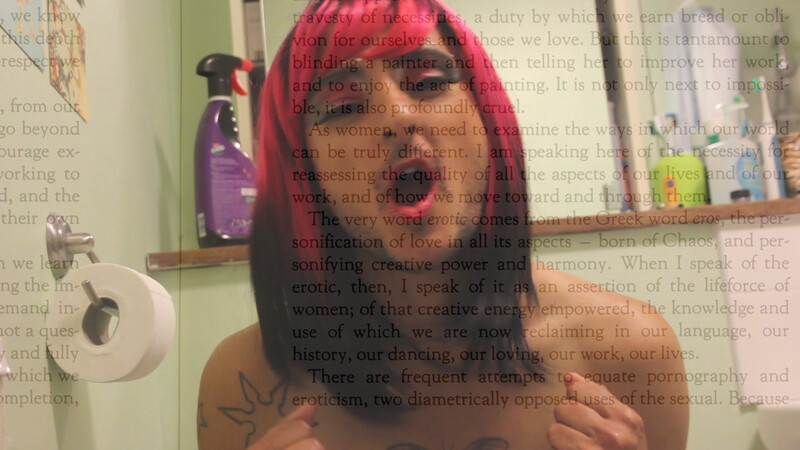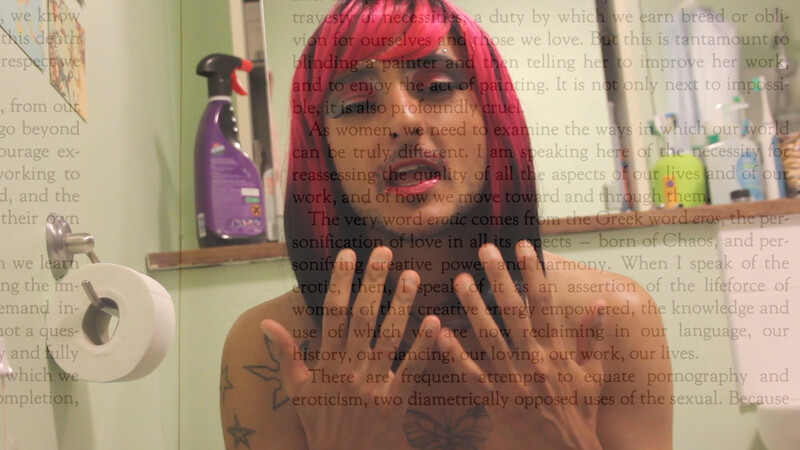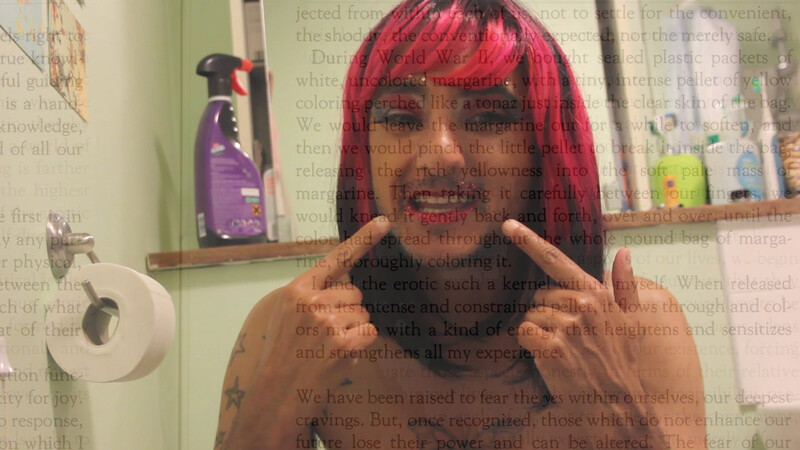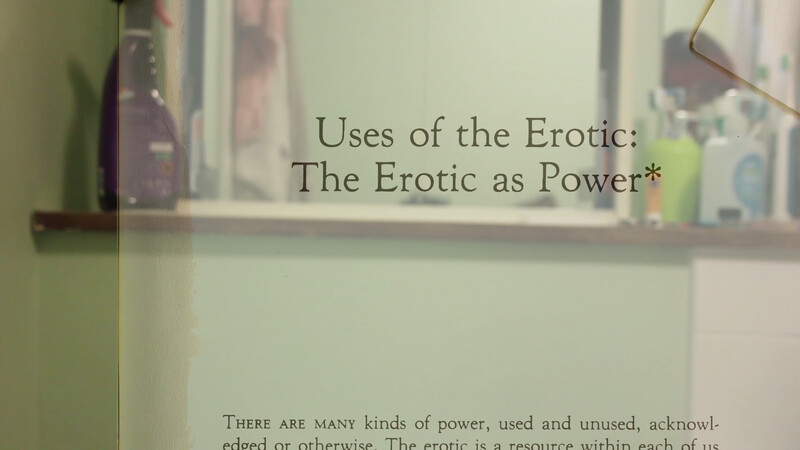



…yeah but can we listen tho?
Practices of creative resistance and survival motivate the work of Raju Rage, whose contribution to Habits of Care consisted of a remote audio/video work, ...yeah but can we listen tho?, performed during Care Crisis, Care Connective: An Open Forum on Cultural Work. Building on their earlier self-care performances in institutional spaces, which draw attention to the lack of care provided within such settings, especially to non-conforming bodies, Raju Rage chose to participate via audio and video feed as a way to avoid the exhausting demands that performance can place on the artist. Exploring how bodies, theory, and practice are dis/connected, Rage focused on possible visions of healing and care in the spaces we carve out for ourselves and for one other.
During the performance, a livestream and video documenting rituals of self-care in a gender-neutral bathroom in a UK University (including makeup, hair, and other drag/gender-bending self-care) were presented from inside a lecture hall at the University of Toronto Mississauga. Prior to the screening, the artist left small “gifts” referencing self-care practices for audience members, disrupting the fixed hierarchical seating of the university’s lecture halls and inviting consideration of gestures of hospitality and reciprocity. Layered textual references enfolded in the performance as quotations including Gayatri Spivak’s “Can the Subaltern Speak” and Audre Lorde’s “Uses of the Erotic: The Erotic as Power” were interspliced with the audio/video.
In Rage’s work, a remote performance takes on a mode of creative, deconstructive resistance, where sound, video, and a token of care index presence. At the same time, their disembodied presence reminds us of the racial and gendered codes associated with the artist’s physical being in institutional spaces, underscoring the need to forge and organize spaces differently.

The Blackwood
University of Toronto Mississauga
3359 Mississauga Road
Mississauga, ON L5L 1C6
[email protected]
(905) 828-3789
The galleries are open. Hours of operation: Monday–Saturday, 12–5pm.
Holiday hours: regular gallery hours are in effect until and including Saturday, December 6. The galleries will then be closed for the holidays, except for regular hours on Saturday, December 13. In 2026, the galleries reopen Monday, January 5.
Facebook | Twitter | Instagram
Sign up to receive our newsletter.
The Blackwood is situated on the Territory of the Mississaugas of the Credit, Seneca, and Huron-Wendat.